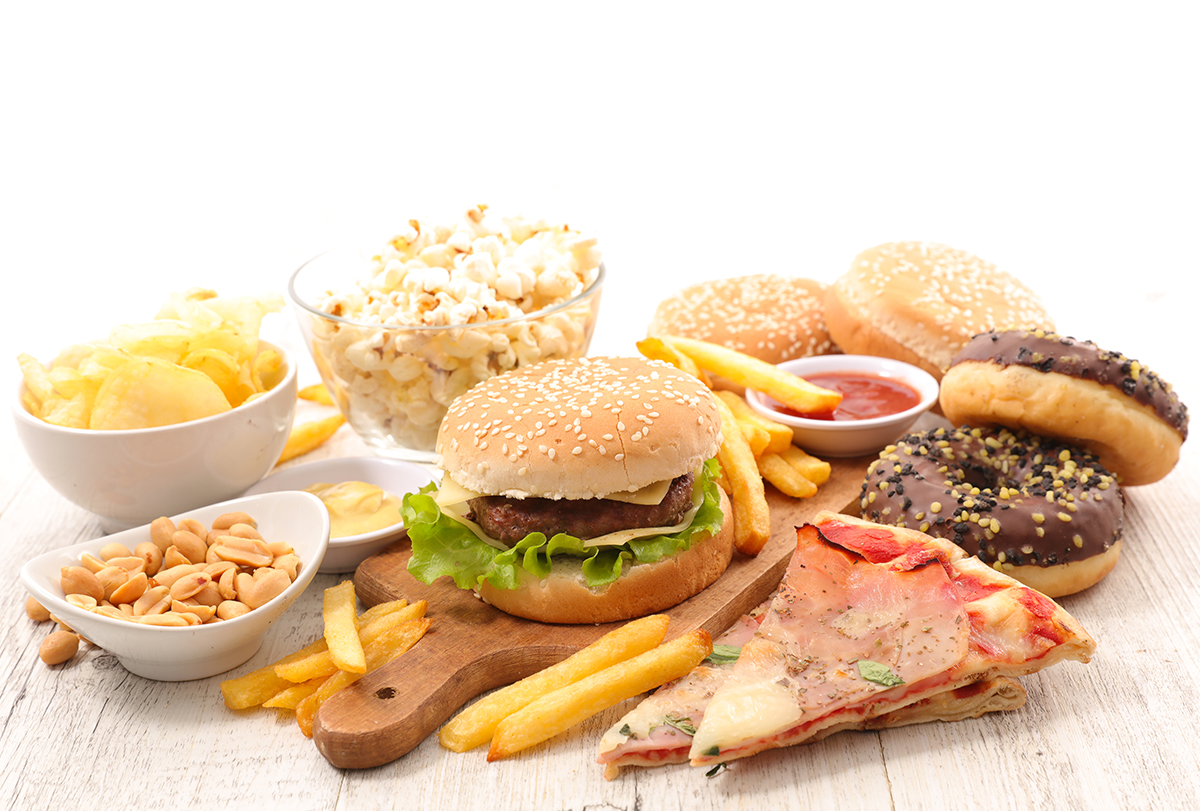In this article:
Until recently, most nutrition professionals were in agreement that a healthy breakfast is the most important meal of the day as it helps rev up the metabolism and keep hunger at bay throughout the day. (1)

However, some of the recent trends have been proposing to skip breakfast altogether – proponents of fasting and intermittent fasting in particular. There are studies suggesting health benefits to these trends as well. (2)
The bottom line: it is highly individual.
If breakfast is your thing, make sure to have a nutritionally balanced one. That means having all three macronutrients (carbohydrates, proteins, and fats) as parts of your breakfast.
Additionally, certain foods should not be on your breakfast list. Some of these foods will surprise you, as often they are being promoted as healthy choices for the first meal of the day.
What Not to Have for Breakfast
Here are some common food items that may seem healthy options for breakfast. However, they must be avoided as a standalone first meal of the day.
1. Breakfast cereal
Most cold cereals in the United States are high in sugar and low in other macronutrients. These will rapidly increase your blood sugar levels and cause a sudden drop soon after, which may make you irritable, shaky, and hungry again.
If you are in a hurry and cereal is your only option, add fruits, nuts, seeds, or unflavored Greek yogurt to increase satiety from the additional proteins and healthy fats.
2. Granola
Touted a healthy breakfast choice, granola is usually very high in sugar.
One-fourth cup of granola on top of your yogurt or mixed with fruit is totally fine, but pouring a cup or more into your bowl would send you into a sugar rush-and-crush cycle. Granola bars fall into the same category.
3. Fruit and/or fruit juice
As part of a balanced breakfast, fruits are wonderful components as they are rich in vitamins, minerals, fiber, and phytochemicals. However, eaten by themselves, they may cause a similar outcome to that of cereal and granola, as mentioned above.
Also, some people may have increased stomach sensitivity to the acidic nature of fruits, leading to intestinal discomfort.
Many health-conscious breakfast consumers are misled into believing they are on the right track for starting their day off right by drinking fruit juice. Nothing could be further from the truth.
The juice is a refined product. Sugar, water, and some vitamins and minerals are still present, but the fiber and flesh are completely removed. This formulation can spike the blood sugar in minutes, causing the same effects as the choices above. (3)
4. Pastries

Made of highly processed ingredients (white flour, sugar, margarine), commercially produced pastries (muffins, coffee cakes, Danishes, doughnuts, waffles, white bread, plain bagels, pancakes) are often low in nutrients and may have lots of additives to preserve their shelf life and freshness.
Avoid packaged baked goods from your grocery store or chain coffee shop. Instead, choose freshly baked artisanal items from a local bakery or café.
5. Instant flavored oatmeal
As opposed to old-fashioned oats or steel-cut oats, instant oatmeal is processed for quick cooking. This means most of the fiber and some of the nutrients were stripped off.
The added flavor often comes from artificial additives and extra sugar. Opt for unflavored old-fashioned oats, topped with fresh fruits, honey or brown sugar, and nuts for added nutritional benefit and increased satiety.
6. Candy
Grabbing a candy bar from a vending machine at work may suit your needs on occasion as a quick energy boost, but do not start relying on it as your daily breakfast food.
Candy is high in sugar, processed fats, and additives such as preservatives and flavor enhancers. When you consume candy, you will miss out on the healthful nutrients, vitamins, and minerals in fresh whole foods.
7. Flavored sweetened yogurt
Many people think they are making a healthy choice by choosing yogurt for breakfast. The type of yogurt would make a difference in that choice.
Sweetened flavored yogurt is loaded with sugar or high-fructose corn syrup, artificial flavors, and preservatives. Plain Greek yogurt is a better option, and you can add the flavors you want by topping it with fresh fruit, nuts, and seeds.
8. Commercial protein shake

Often featuring added artificial flavors and sweeteners or excess amounts of added sugars, commercial protein shakes may not be suitable for those trying to make a healthier breakfast choice.
It is better to make your own shake or smoothie by blending a handful of fruits, a scoop of protein powder, and your milk of choice.
9. Bacon and/or sausage
Both commercially produced bacon and breakfast sausage are considered processed meats.
The World Health Organization warned in 2015 that processed meats cause cancer. It was found that eating 50 grams of processed meat every day increased the risk of colorectal cancer by 18%. That is the equivalent of about 4 strips of bacon or 1 hot dog. (4)
For red meat, there was evidence of an increased risk of colorectal, pancreatic, and prostate cancers. (4)
10. Custom-made drinks and shakes
Salty Caramel Mocha Skim Milk Frappuccino with Whip Cream or any other premade or custom-made coffee from the coffee shop – a grande cup of this concoction packs more sugar than a bottle of soda and will make you come back for more due to the added flavors and combinations of ingredients. (3)
What to Eat for Breakfast
At every breakfast meal, ensure to include:
- Protein (Greek yogurt, smoked salmon, eggs, protein powder in a smoothie, nuts and nut butter, soy milk, and yogurt)
- Complex carbohydrates (old-fashioned oats, fruits, and wholegrain bread)
- Healthy fats (nuts and nut butter, smoked salmon, chia, and flaxseeds)
The combination of all three macronutrients ensures sustained energy, satiation, easy digestion, and provision of building blocks for your body. The key to staying consistent with healthy eating is proper planning.
Expert Answers (Q&A)
Answered by Matthew Knight, RDN, LDN

An important part of any successful weight loss program is an overall reduction in daily calorie intake.
Foods that lead to increased feelings of fullness should be the focus of all meals, including breakfast, to help you eat less throughout the day.
Evidence suggests (5) that a high-protein breakfast providing 30 or more grams of protein and 350 or more total calories will keep you feeling full longer.
Eggs, Greek yogurt, low-fat cottage cheese, milk, and turkey sausage are excellent high-protein breakfast choices.
Because everyone’s daily schedule is different, there is no perfect time when breakfast should be eaten. Instead, focus on tuning into your feelings of hunger and eat a nutritious meal or snack when you start to feel hungry each day.
The largest risk associated with skipping breakfast is missing out on an opportunity to take in important nutrients, including protein, fiber, and vitamin D, that you may not be able to make up for later in the day.
No specific nutrients need to be eaten more of at breakfast time with the possible exception of protein to help with morning fullness.
A balanced healthy breakfast should provide calcium, vitamin D, fiber, and potassium. These nutrients are found in foods such as whole grains, dairy products, fruits, and vegetables.
No. Research is mixed on the need to eat breakfast if it is not part of your regular daily routine, but skipping a meal you normally consume is not a viable long-term weight loss strategy.
No, the same foods can be part of a healthy diet for both males and females. Generally, females have lower daily calorie needs than males. (6)
So, if you are a female and attempting to reduce calorie intake for weight loss, the nutritional quality of every meal becomes even more important to ensure daily nutrient needs are being met with lower total calorie intake.
A healthy breakfast should focus on a balance of carbohydrates, proteins, and fats.
While a vegetarian diet pattern generally includes many nutritious foods, lean meats, and other healthy proteins can also be part of a healthy breakfast if these are items you choose to include in your diet.
Nutrient needs do not change based on the season. However, warm foods such as oatmeal can be more comforting when it is colder outside. In the summer, colder foods such as overnight oats, yogurt parfaits, fruit, and cottage cheese can be satisfying choices.
The definition of breakfast varies according to different cultures around the world.
In the United States, foods identified as breakfast foods are usually convenience items such as breakfast cereals and breakfast sandwiches, which can be consumed on the go to match the busy lifestyles.
Truthfully, any healthy, enjoyable food can be consumed at any time of the day – there are no rules.
Final Word
Some people do not feel like having food first thing in the morning, whereas others often wake up hungry. The context of life matters too – bedtime and waking hours, level of physical activity, type of work people do, etc.
Breakfast may also make or break your day, depending on its components. The best breakfast meal is one that includes a healthy balance of all the macronutrients, can be eaten consistently without getting bored or having digestive issues, is easy to prepare in the limited time you have available, and will keep you feeling full until lunch or your next meal of the day.
- Was this article helpful?
- YES, THANKS!NOT REALLY


